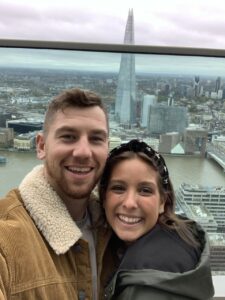
East Auckland local Kezia Jaffar was living in a flat of five in the UK when she and three of her roommates contracted Covid-19.
“Part of me was relieved,” the Cockle Bay resident says.
“I figured the sooner I get over it and done with the better.”
Seven months later, Jaffar is still suffering from the virus’s long-term effects.
‘Long Covid’ is described by the Ministry of Health (MoH) as “signs and symptoms that continue or develop after acute Covid-19”.
People experiencing symptoms are often referred to as “long-haulers”.
As the MoH says, as of yet, “there is no official definition of long Covid or diagnostic criteria for the condition”.
While most New Zealanders are aware of the existence of long Covid, many may not know about the symptoms and life-changing long-term effects that continue after contracting the virus.
Dr Anna Brooks, a cellular immunologist and senior research fellow at the University of Auckland, says all that’s known of how many people in New Zealand suffer from long Covid is from a Facebook support group with more than 200 members.
However, due to support groups not being for everyone, there are likely more.
The group continues to grow from recent media stories raising awareness.
Still, many long-haulers agree there’s a lack of general knowledge and awareness, including Jaffar.
“For the most part it seems like an invisible illness that looks like someone is exaggerating themselves,” she says.
“Because we’re not walking around on ventilators it’s hard for people to empathise.
“If you look at most long haulers, we were fit, happy, functioning members of society.
“So ask yourself, why would we give that up?”
Jaffar, 26, used to bike consistently, play sport, and balance work while being on an adventurous OE.
She has a degree in TESOL, Spanish and French from Auckland University.
Now she naps daily and struggles to walk up stairs without stopping for a rest break.
Her main symptoms of long Covid are debilitating fatigue, inability to exercise without consequences, blurred vision, brain fog and unwavering anxiety.
“No day is the same,” she says.
“Some days I can walk around the block and some days I can’t leave my bed.
“That’s the most difficult thing for myself and anyone watching me go through this, to comprehend.”
Jaffar emphasises it isn’t simply fatigue.
She gets exhausted from “the smallest things, making my bed and brushing my teeth. I wake up from a night’s sleep and feel like I haven’t even slept at all”.
When she returned from the UK, Jaffar’s goal was to do her post graduate diploma in teaching to become a qualified teacher.
But due to long Covid, she had to resign from her job, lose her independence and income, and move back into her parent’s home.
“I left behind everything I had worked for.”
Long Covid has also severely affected her mental health.
“I don’t think I’ve cried so much as I have in the past seven months,” Jaffar says.
“Covid has put me in the darkest place I’ve ever been in my life.
“I don’t think I’ll ever be the same”.
Due to the low rate of Covid cases in New Zealand, health professionals’ ability in assessing long Covid patients is limited, Brooks says.
“It’s been incredibly slow for information about the chronic condition to disseminate within New Zealand.
“The patients are finding they need to self-advocate, and often educate their doctors if they are indeed heard at all.”
Long-haulers have been calling for more research to be conducted.
They’re launching fundraising efforts to do their own research in conjunction with Brooks.
“The first wave of people with long Covid is only being believed and treated more in depth now,” Jaffar says.
“It’s something that’s flipped my world upside down and something I hold close to my heart.
“I think if people who are suffering don’t speak up then no one will know.”







